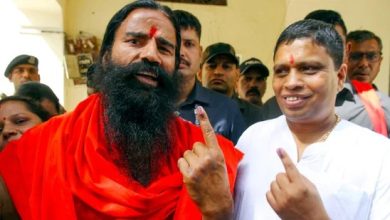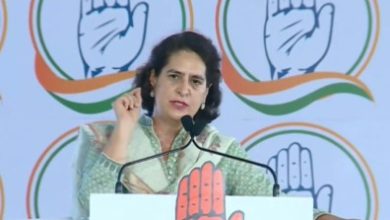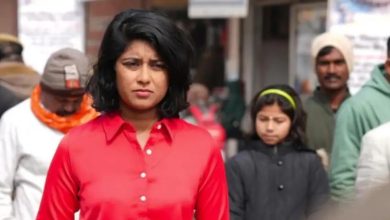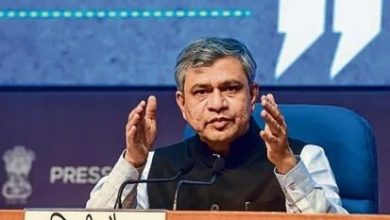LGBTs Win First Battle; Delhi High Court Legalises Gay Sex
Delivering a groundbreaking ruling, Delhi High Court has decriminalized gay sex between consenting adults, observing that the 150-year-old colonial law making homosexuality illegal infringed the rights of citizens. The ruling, first of its kind, will apply only in Delhi.
“We declare that section 377 of the Indian Penal Code, in so far as it criminalizes consensual acts of others in private runs counter to basic human rights guaranteed by articles of the Indian constitution,” Chief Justice AP Shah of the Delhi High Court said in a ruling.
“We declare that section 377 of the Indian Penal Code, in so far as it criminalizes consensual acts of others in private runs counter to basic human rights guaranteed by articles of the Indian constitution,” Chief Justice AP Shah of the Delhi High Court said in a ruling.
Health activists fighting against HIV and AIDS have been criticizing the section 377 of IPC, enacted by British rules in 1860, saying it hinders their fight against the dreaded disease. However, the parts of the law will continue to apply to forms of non-
Section 377, drafted by British rulers in 1860, has drawn criticism from public health activists as hindering the fight against HIV and AIDS. Parts of the law will continue to apply to forms of non-consensual sex, the ruling said.
Activists Welcome Decision
Gay activists and the NGO which fought an eight-year-old battle welcomed the verdict of the High Court.
“Now it seems we are in 21st century as the rights of homosexuals have been recognised by the high court.
“This is very progressive judgement which recognises the right to equality,” Anjali Gopalan, founder of Naz foundation, the NGO, which filed the petition in Court, said.
The Naz Foundation works to prevent the spread of HIV and AIDS and had filed a petition before the Delhi High Court in 2001 seeking the abolition of section 377.
Naz argued the law violated rights to privacy and equality guaranteed under the Indian constitution. The law, the group says, has been used to harass or blackmail gay men and women in return for money or sex.
“This is a long-awaited and incredible judgement,” says Gautam Bhan, gay rights activist, “The judges in their verdict spoke about inclusivity, equality and dignity. They spoke about a vision of India as an open, tolerant society and to hear all this from the Delhi High Court was amazing.”
“I’m overwhelmed. It’s great not to be criminalised for being a human being and what you do in your bedroom,” said Celin Jaitely, Bollywood actress.
Criticism from Religious Leaders
Certain religious leaders strongly disapproved of the Delhi High Court judgement.
“This is absolutely wrong to legalise homosexuality. We will not accept any such law,” Jama Masjid Imam Ahmed Bukhari said.
He also critcised the government for trying to amend the Indian Penal Code to scrap section 377 that criminalizes homosexuality.
“If the government makes such attempt to scrap the Section 377, we will oppose it strongly,” Bukhari said.
All India Muslim Personal Law Board member Maulana Khalid Rashid Firangi Mahli said homosexuality is not allowed by any religion.
“It is against all religions. It is against the culture of Indian society. We feel there is no need to legalise homosexuality. This practice is unnatural. It should continue as a criminal act,” he said.
Father Dominic Immanuel said that churches have no objection to decriminalisation of homosexuality but it should not be legalised.
“We have no objection to decriminalisation of homosexuality because we do not consider these people as criminals on par with other criminals,” Immanuel said.
Chronology of Battle
Following is the chronology of the eight year-long legal proceedings which ended on Thursday with the Delhi High Court legalising gay sex among consenting adults.
2001: An NGO fighting for gay rights, Naz Foundation files PIL seeking legalisation of gay sex among consenting adults.
Sept 2, 2004 : Delhi High Court dismisses the PIL seeking decriminalisation of gay sex
Sept, 2004: The gay right activists file review petition.
Nov 3, 2004: The HC dismisses the review plea.
Dec, 2004: Gay rights activists approach the apex court against the order of the High Court.
Apr 3, 2006: The apex court directs the HC to reconsider the matter on merit and remands the case back to High Court.
Oct 4, 2006: The HC allows senior BJP leader B P Singhal’s plea, opposing decriminalising gay sex, to be impleaded in the case.





